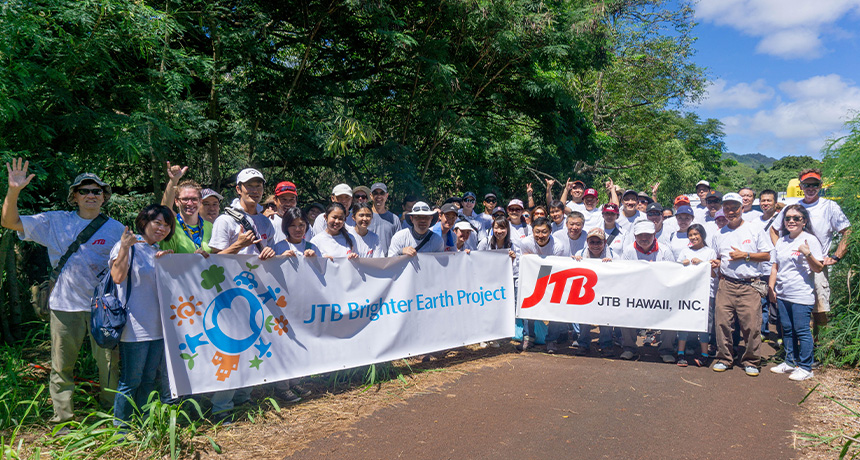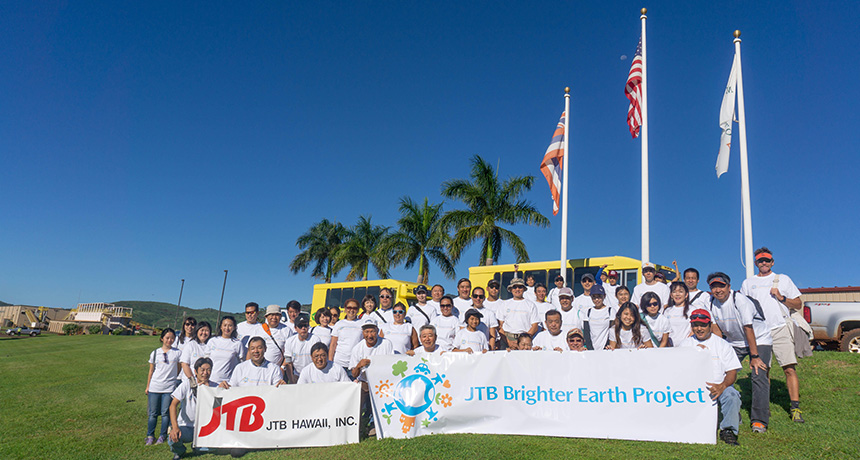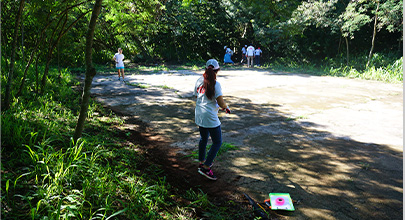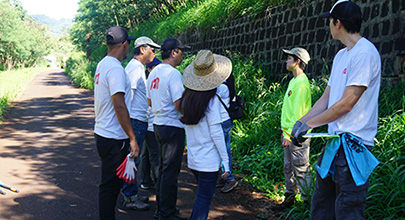We participated in an activity to protect a historical site by removing weeds and trash from Honouliuli National Historic Site. The site was an internment camp for civilians and war criminals during World War II, housing 400 internees and 4,000 war criminals. In 2015, President Barack Obama signed a proclamation designating the site as a Honouliuli National Historic Site, as a reminder that civil liberties must be protected even in times of war. Through this project, we will participate in activities to protect Hawaii's historical heritage and continue to uphold JTB's philosophy of " Conserving the precious resources of our planet".


01 Voice of the supervisor
We assisted in removing vegetation and mapping the historic site as part of the National Park Service's initiative to open Honouliuli to the public as a National Historic Site. Working with the Japanese Cultural Center of Hawaii and the National Park Service, we were able to make a significant contribution to the preservation and documentation of this historic landmark.
02 Voice of the cooperating organization
I want to thank JTB Hawaii for working with the Japanese Cultural Center of Hawaii on the clean up of the Honouliuli National Monument for its Brighter Earth Project. I was surprised when first approached by JTB expressing their interest in Honouliuli. The site is not easily accessible, nor comfortable to work or visit. Located in a deep gulch in West Oahu, it is hot with little trade winds to cool the area. Nevertheless, JTB was committed to giving their employees a unique experience, partnering with JCCH and making a contribution to the community. While the work on the site of the former World War II internment site was important to JCCH's preservation efforts, the JTB Brighter Earth program brought together JCCH, National Park Service at World War II Valor in the Pacific and Bayer (formerly Monsanto Hawaii), a rare but valuable partnership between the private sector and the public - a non profit organization and federal government agency. Such partnerships are important and critical if we are to preserve and educate others on the historically significant sites in our state and nation. I am grateful to JTB Hawaii for their support and interest in the work of the Japanese Cultural Center of Hawaii and look forward to our continued partnership in the coming years.
03 Voice of the participants
- It is a great honor for me to have the opportunity to participate in the protection activities of the Japanese-American internment camp, which is one of the important incidents in the history of Japan and the United States. As an American of Japanese descent who was born and raised in Oahu, I have long been very interested in the islands of Hawaii and the history of Japan. Through this project, I was able to learn a great deal from the volunteer staff of the Hawaiian Japan Cultural Centre (JCCH) and Honouriuri.
- As Mr. Les of JCCH said during the project, this is not just a clean-up work, but a valuable opportunity to look back on history, thank us for what we have now, and think about what we can do for the future and the next generation. Connecting histories to the present and to the future, the company will expand its networks with colleagues at work and with business partners (JCCH, Monsanto/Bayer). I think that's what I was able to do because I'm a member of the JTB Group.
- As an American of Japanese descent, I myself was moved by the geographical and historical knowledge you taught me. I think it is really wonderful that national park services and Monsanto/Bayer, JCCH volunteers are working very hard on this project.


